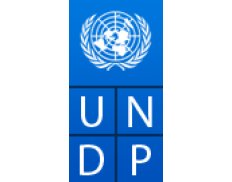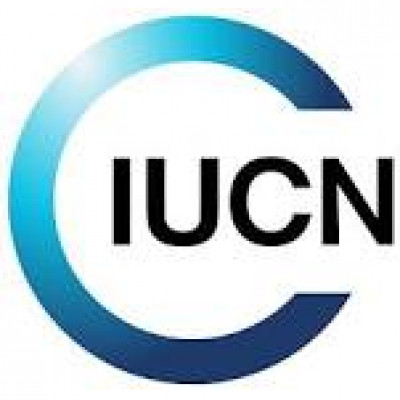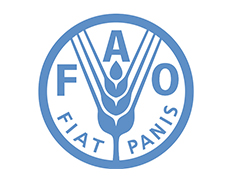Details
Description
Background
Today more than 60 countries have introduced Extended Producer Responsibility (EPR) as a policy tool to effectively manage waste. Under EPR, the producers of certain products are made responsible for the End of Life (EoL) management of their own products. A growing number of ASEAN countries has begun to introduce EPR, particularly, targeted at plastic products and waste. Cambodia is also one of them.
Cambodia is among the fastest growing economies with rapid population growth in Asia. With growing population and economic activities, Cambodia now faces the challenge of the mounting volume of waste. This situation is particularly alarming in major cities, such as Phnom Penh, which produces 3,600 tons of waste on a daily basis. It is notable that more than 90 % of all waste consists of recyclable materials (e.g., organic 55 %, plastic 21 % and textile 13%) yet a very minimal amount has been recycled under current waste management practices.
To tackle this waste problem, UNDP Cambodia has assisted the Royal Government of Cambodia (RGC) in promoting Circular Economy (CE) options such as 4Rs: Refuse, Reuse, Reduce, and Recycle for waste management. UNDP has also been providing technical assistance to the RGC for designing an EPR for effective plastic waste management and recycling, through the Policy and Innovation Unit and the combating marine plastic litter (marine plastic) project. For instance, a draft report on EPR roadmap was developed in December 2021 to introduce definitions, main instruments, and key design elements of EPR and to propose steps to operationalise EPR. Based on this report, the Ministry of Environment (MoE) made an initial recommendation to begin with a voluntary EPR pilot scheme and to move towards a mandatory one drawing on lessons learned from a pilot phase.
It is also notable that in March 2022, at its fifth meeting held in Kenya, the UN Environment Assembly made a historic decision to adopt a resolution[1] to draft an internationally legally binding instrument by 2024 to end plastic pollution. Thus, in the next coming years all member states including Cambodia are to develop and implement a range of measures which may include EPR to collectively tackle plastic pollution. These measures are to address the full lifecycle of plastics, including production, design, and disposal as well as the design of reusable and recyclable products and materials.
Among different actors, the private sector has a pivotal role in driving and scaling up business innovation, in accelerating a shift towards a circular economy and implementing EPR. Yet, systematic collaboration with the private sector requires a robust engagement strategy drawing on a comprehensive understanding of major features of their current business practices, and business innovation opportunities for creating a circular economy.
Another important stakeholder for plastic intervention is the informal waste pickers who collect materials from households, hotels, restaurants, and landfills for recycling. It is estimated that they are responsible for the recycling of 7.3% (75,000 tons) of the total municipal waste volume generated in Phnom Penh. Experiences from other countries indicate that active engagement of the informal waste sector for EPR and recycling is conducive to scaling up related interventions. It is therefore important to identify and promote opportunities to engage informal waste pickers for recycling.
[1] https://wedocs.unep.org/bitstream/handle/20.500.11822/38522/k2200647_-_unep-ea-5-l-23-rev-1_-_advance.pdf?sequence=1&isAllowed=y
Duties and Responsibilities
Under the direct supervision of an Environmental Policy Specialist and in collaboration with an international/national junior circular economy consultant, the international consultant will be responsible for providing high quality technical inputs for the following areas of works, based on an in-depth understanding of national contexts while incorporating lessons learned from global and regional best practices:
Development of the private sector engagement strategy for EPR, this may include:
Analysis of EPR business engagement opportunities in target sectors defined by UNDP
Design of plans, approaches, and strategies to engage the private sector for EPR and pilots
Facilitation and strengthening of due diligence analyses, if required, to identify risks, and opportunities and propose measures to address identified risks
Development of strategic info materials for engaging target businesses and other stakeholders
Updating of a design of EPR with incorporation of best practices from the region and a human rights-based approach
Compilation and documentation of regional level lessons learned and best practices from EPR in the ASEAN countries
Development of information brief(s) for EPR including the strategies to engage the private sector and informal sector.
Design of strategies for the incorporation and promotion of “Human Rights Based” approach in the design and implementation of EPR and other circular economy initiatives
Provision of technical assistance to the Government to develop plans and strategies in response to a new United Nations Environmental Assembly resolution
Provision of guidance to the country office for required measures and instruments
Sharing of knowledge of other ASEAN countries’ approaches and commitments towards legally binding measures
Competencies
Functional competencies:
Strong communication and writing skills in developing information materials and briefs for an organization.
Corporate competencies:
Demonstrates integrity by modeling the UN’s values and ethical standards.
Displays cultural, gender, religion, race, nationality and age sensitivity and adaptability.
Treats all people fairly without favoritism.
Fulfils all obligations to gender sensitivity and zero tolerance for sexual harassment.
Required Skills and Experience
Education:
Master’s degree, or equivalent, in business administration, public policy and administration, or a related field
Experience:
At least 7 years of working experience relevant for business and partnership development with prior working experience in Southeast Asia. Prior working experience with the private sector or/and UN agencies is a plus
Prior experience with circular economy and plastic management and in developing/initiating business ideas and outreaching relevant stakeholders, especially the private sector, and in designing strategic communication materials including information brief(s).
Language Requirement:
English is required




